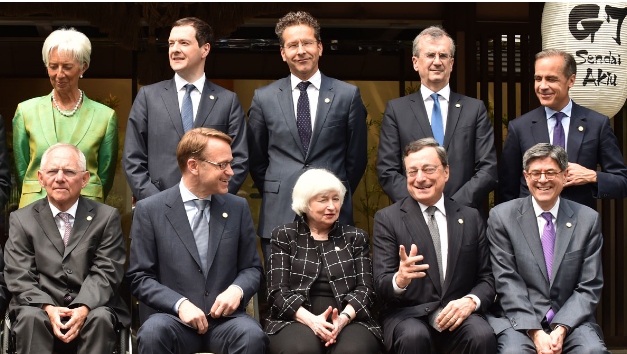MoneyWeek today publish a look at the hole that central banks have got themselves into 23 May 2016
We spend a lot of time here posting and discussing the role of central banks, their personnel and decision making. We and our readers often cast aside their rhetoric,and indeed actions sometimes, with derisory scorn.
Now John Stepek of Moneyweek writes a piece called "The "elites" don't get it - no one trusts them anymore" and I think it will strike a chord amongst many of you/us who are closely involved as this particular house of card comes tumbling down, regrettably.
John writes:
"It's nearly eight years since the 2008 financial crisis ignited with the collapse of Lehman Brothers. Over here in the UK, it's nearly nine years since we experienced the shocking sight of a genuine, Mary Poppins-style, queues-on-the-high-street bank run, sparked by the collapse of Northern Rock.
Since then, we've seen more radical monetary policy on a global basis than ever before.Yet growth has been disappointing. Inflation (the stated goal of monetary policy) has remained stubbornly low. Debt is growing, not falling. What's the solution? Well, according to the thinkers who got us into this mess in the first place, it's ever more radical monetary policy..."
Stepek argues that helicopter money is extremely dangerous:
"The idea that Ben Bernanke could work out exactly how much money should be printed at any given moment, when he couldn't even see the sub-prime crisis blowing up under his nose, is ridiculous."
Many here have noted that RBI governor Rajan speaks a lot of sense and Stepek makes this worthy point:
"Raghuram Rajan is the governor of the Reserve Bank of India. To my knowledge, he is literally the only working central bank boss to have publicly and accurately warned of the global financial crisis before it happened. Given his record, I'm more inclined to listen to him.
His concern - cited in Turner's article - is that taking an action as radical as introducing helicopter money might panic people into hoarding any printed money. It's a variation on the "low interest rates are the problem, not the solution" argument.
Yet no one's listening to Rajan. He doesn't peddle the establishment line. So he's sidelined in the arguments."
He concludes:
"A bit more humility from the people who were in charge when things went horribly wrong might help. An acceptance that they made mistakes, and that many of the complaints from the hoi polloi are justified. Some indication that lessons have been learned and that it might be a good idea to do certain things differently in future.
But unfortunately, people generally take the path of least resistance. Printing a whole load of money in the hope of papering over the cracks is a lot easier than planning for genuine change.
Watch the skies for the money 'copters."
I think the article makes for some very interesting, accurate and sad observations and undoubtedly merits a read here.

The "financial elite" - Be afraid, be very afraid.



